Human-Centred Education: Actively shaping the future of AI in Education
On the 24th to 25th of October, the EEA helped facilitate the Council of Europe's second Working Conference on Regulating AI Systems in Education. The two-day event in Strasbourg gathered over a hundred experts and actors in AI and education to explore how we can create a legal instrument guiding the practice and development of AI systems.
It was our honour to help facilitate the Council of Europe's 2nd Working Conference on Regulating AI Systems in Education and to join the organising team of Wayne Holmes Jen Persson RonSalaj, Christian M. Stracke and our very own Beth Havinga to develop this event.
The conference was attended by over 250 participants from 45 different countries, and all of these various points of views made the discussions incredibly interesting and productive. Throughout the two-day conference we heard from 13 keynote speakers and then organised the participants into smaller groups who all had an expert facilitator managing the discussions.
We set out to find how we in the education ecosystem can regulate AI in education settings? How do we maintain innovation possibilities whilst safeguarding learners and educators as they use and test new tools?
Our key takeaways from the event include:
👉 The use of AI in education needs to be transparent, accountable and aligned with established legal frameworks
👉 The individual nation's autonomy is incredibly important as they navigate these issues, especially in advancing AI literacy initiatives that support critical thinking.
👉 There are already so many great initiatives in the member state level that can inform and guide developments in other countries.
👉 We need to act together now - so many issues are affecting our learners and educators already and require practical support, not just academic discussion.
👉 Leverage the educational benefits of AI, and how it can foster innovation and positively change the way teachers can interact with their students.
However, the main message on the future of education is that it is up to us collectively to use AI to serve our fundamental educational values and ensure a human-centred approach.
We all came to the conference with our separate set of ideas and opinions on AI and education, and it was interesting to see the changes in discussions as the conference progressed. At the very start- and at the end of the two days in Strasbourg we asked:
What key issues should be addressed by a European-wide legal instrument to regulate the use of AI systems in educational contexts?
And what a difference a day makes! As you can see in the two word clouds below, there is no doubt a change in ideas from the participants after two days of intense and engaging dialogue!
To ensure we maintain a human-centred education in the face of AI, collaboration is key. We in the EdTech industry are actively shaping the future of education, and in the age of AI we need to ensure it remains human-centred, rights-based and democratically sound. In other words, it is up to us to set the parameters and ensure AI serves us and our children in an ethical and inclusive way.
The main objective of the conference was to offer actionable recommendations for the development of a legal instrument that ensures the ethical, equitable and effective use of AI systems in educational settings. These recommendations will be included in a Policy Toolkit and the Review system for the evaluation of Edtech and will be published by the Council of Europe.
A special acknowledgement to the outstanding CoE Education team who made this conference a landmark event: Villano Qiriazi, Ahmet Murat KILIÇ, Maria Benedita Santos Silva, Pierre Varasi, Eva Piu and more.

